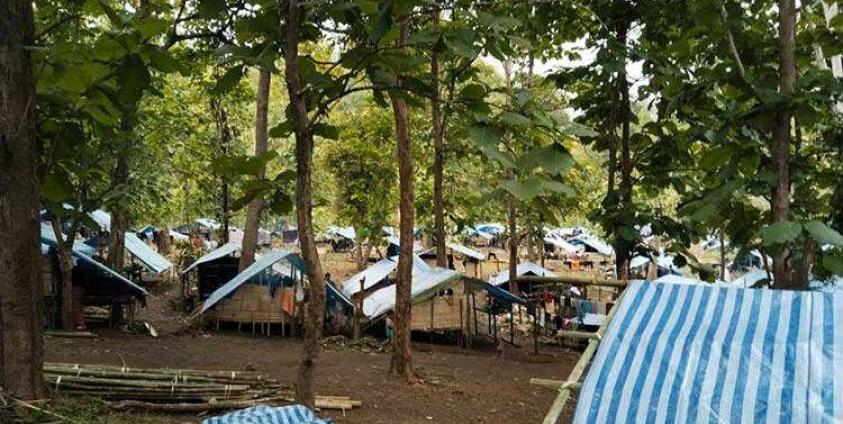Despite the Ministry of Foreign Affairs of Thailand expressing its commitment to accept and support Myanmar refugees arriving at the Thai border, both Karenni war-displaced people and aid workers report that more than a month has passed, with no tangible changes.
Maw Pareh Myar, Secretary No. 2 of The Karenni National Women's Organization (KNWO), stated that while Thai authorities initially claimed they would accept Myanmar refugees, the reality is that they are compelling displaced individuals who reach the Thai border to return to their places of origin.
"There's a contradiction between the statements made by the Thai authorities in the news and the actual humanitarian aid situation on the ground. For example, refugees arriving at the border encounter various pressures to return to their places of origin, a stark contrast to the narrative presented in the news”, she told NMG.
To date the Thai commitment remains unfulfilled, and refugees at the border are facing pressure to leave the area.
War-displaced individuals currently seeking refuge on the Thai border have been directed by Thai authorities to return to the Dor No Koo refugee camp on the Myanmar side, with a specified deadline of January 18th, as reported by a Karenni woman who has personally experienced the situation.
The majority of Karenni refugees facing pressure from Thai authorities to return were previously residents of the Dor No Koo refugee camp. Following airstrikes and artillery bombardments by the coup Military Council targeting the camp, these refugees sought refuge on the Thai side, fleeing for safety.
Due to fluctuations in the security situation, the refugees have had to migrate between Dor No Koo and the Thai side multiple times, on at least three occasions already. Currently a return to Dor No Koo while battles are still going on in the vicinity of the camp, would
put their lives in danger, and violate UNHCR rules for the protection of refugees.
"In the past few days, we have not seen any aircraft flying around, but the intensity of the fighting and artillery shelling has been very intense. There were reports of airstrikes in Shadaw. We have had to move back and forth to the border three times already.
Managing the constant set-up and dismantling of tents keeps us very busy. The future is uncertain, and no one can predict what will happen next”, a refugee from Dor No Koo said.
Despite the passing of the January 18th deadline set by Thai authorities to return the refugees to Dor No Koo, the war-displaced people are still stuck on the Thai side of the border, unable to return due to current circumstances, but vulnerable to be push back at anytime.
Dor No Koo camp accommodated over 5,000 individuals from approximately 1,000 refugee families, comprising people displaced by the conflicts that unfolded across Karenni State following the coup. In July of the previous year, a refugee was killed during an airstrike by the Military Council targeting the Dor No Koo camp.
On November 13th and 14th, approximately 800 displaced individuals sought refuge on the Thai side in response to the Military Council's artillery barrages.
The war-displaced individuals expressed their preference to temporarily remain on the Thai side due to the current lack of safety for returning to Dor No Koo.







